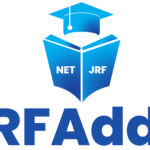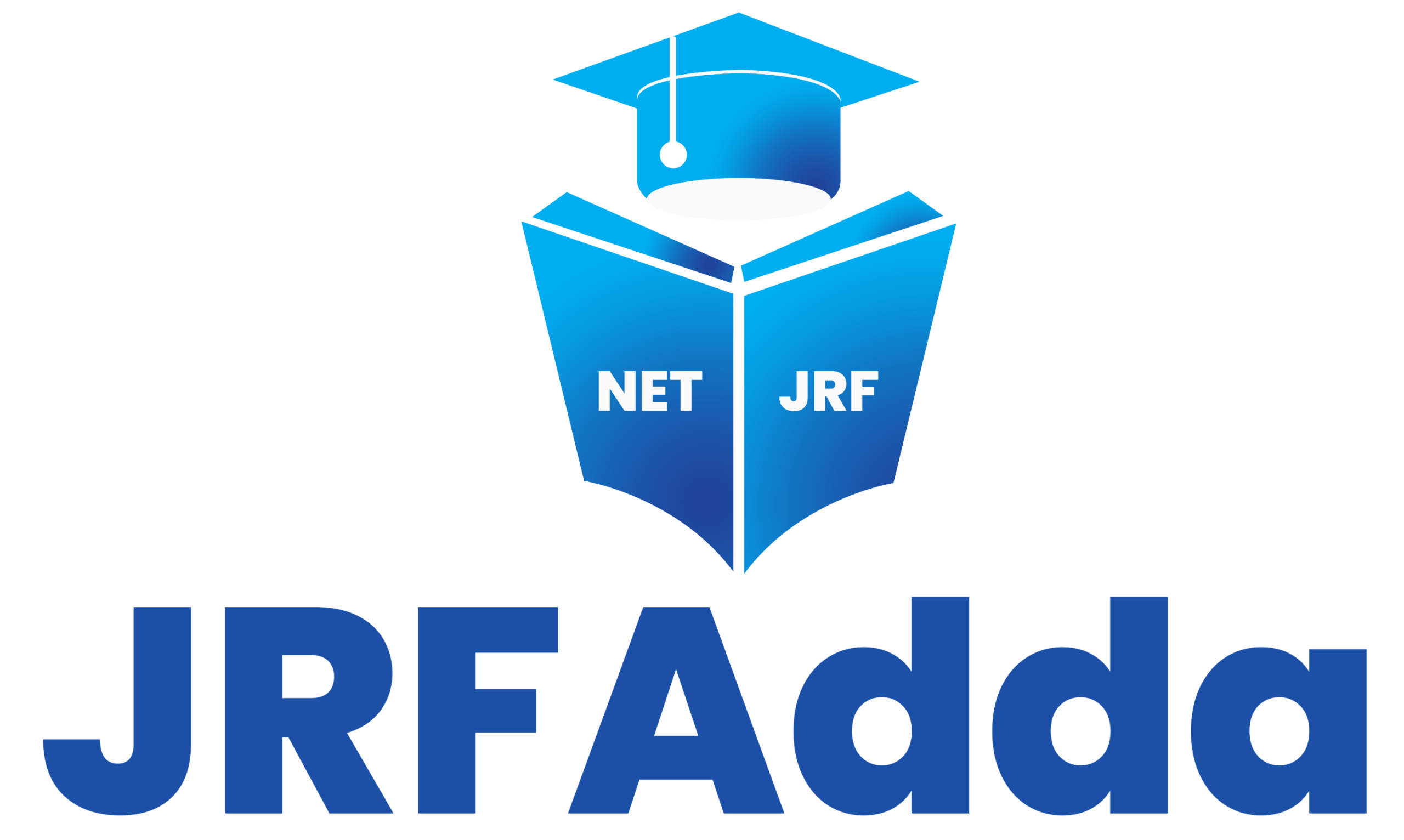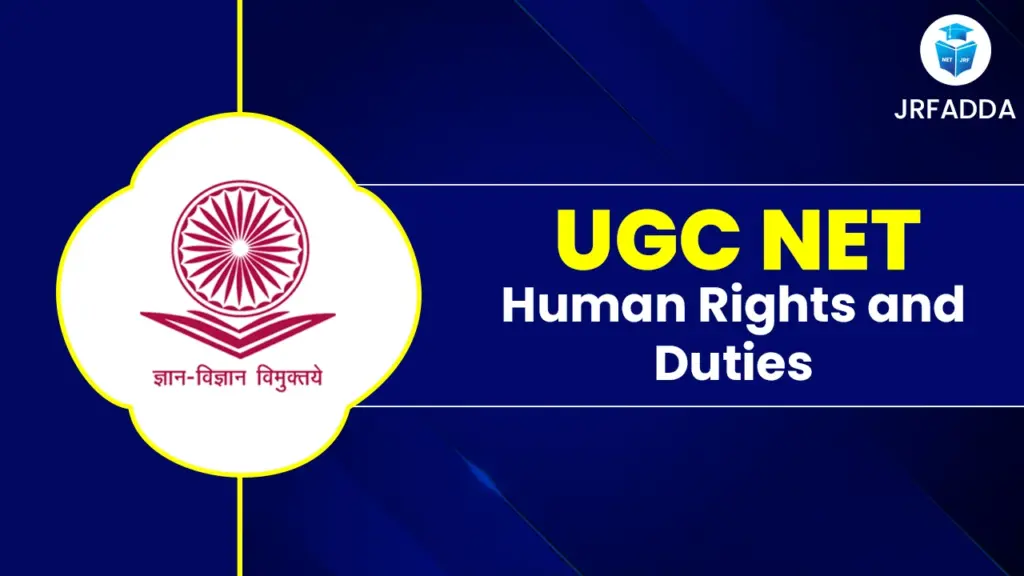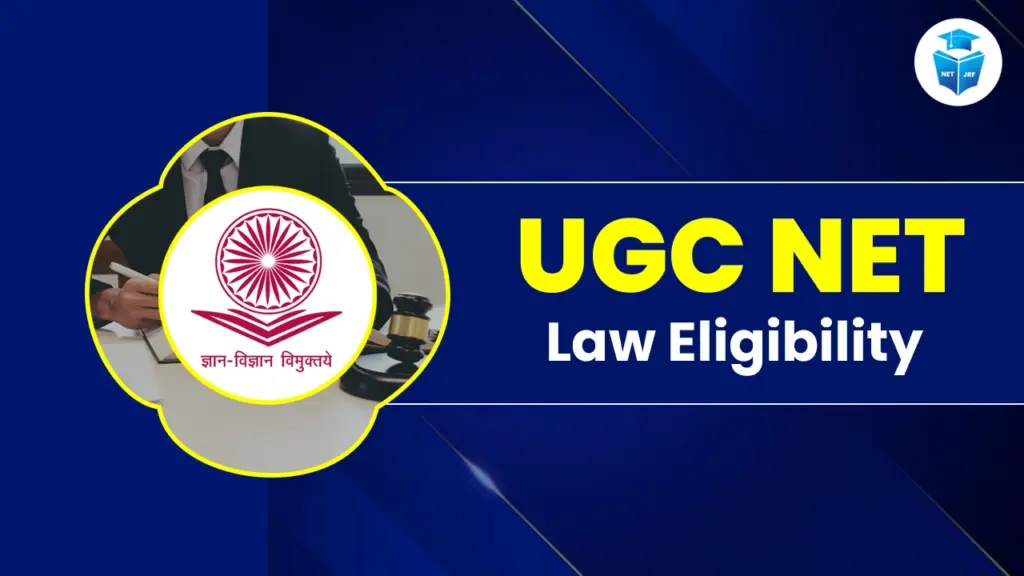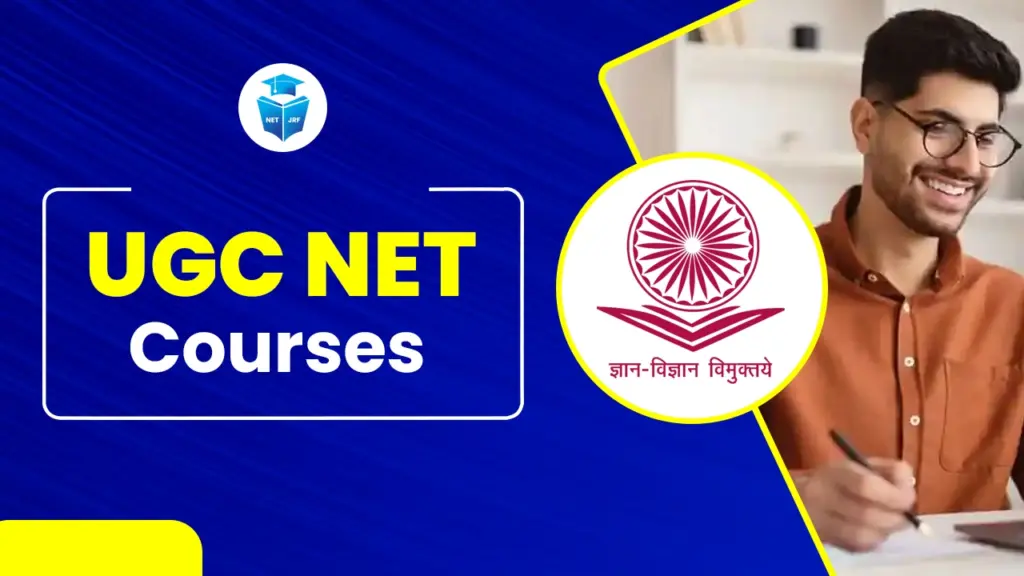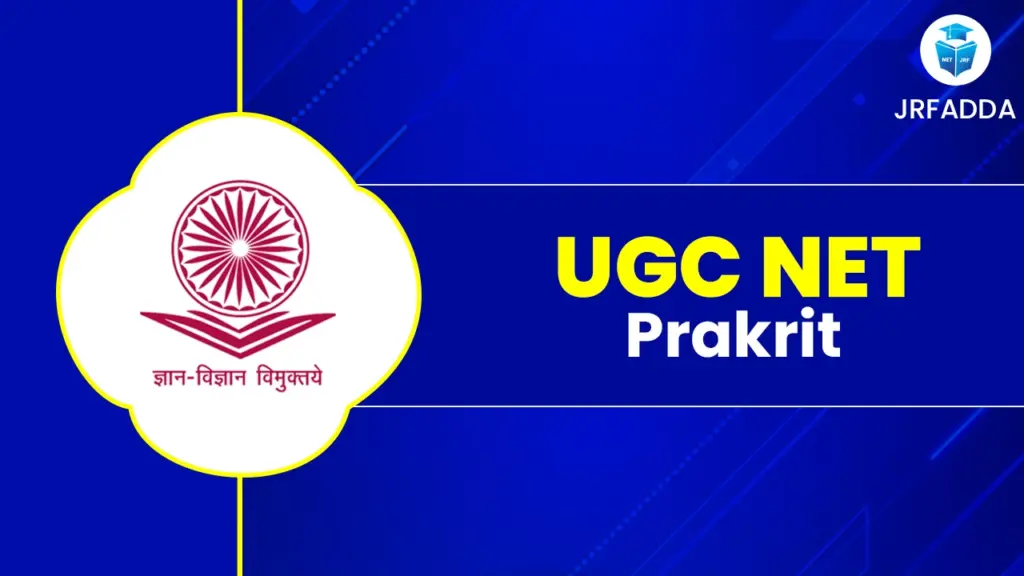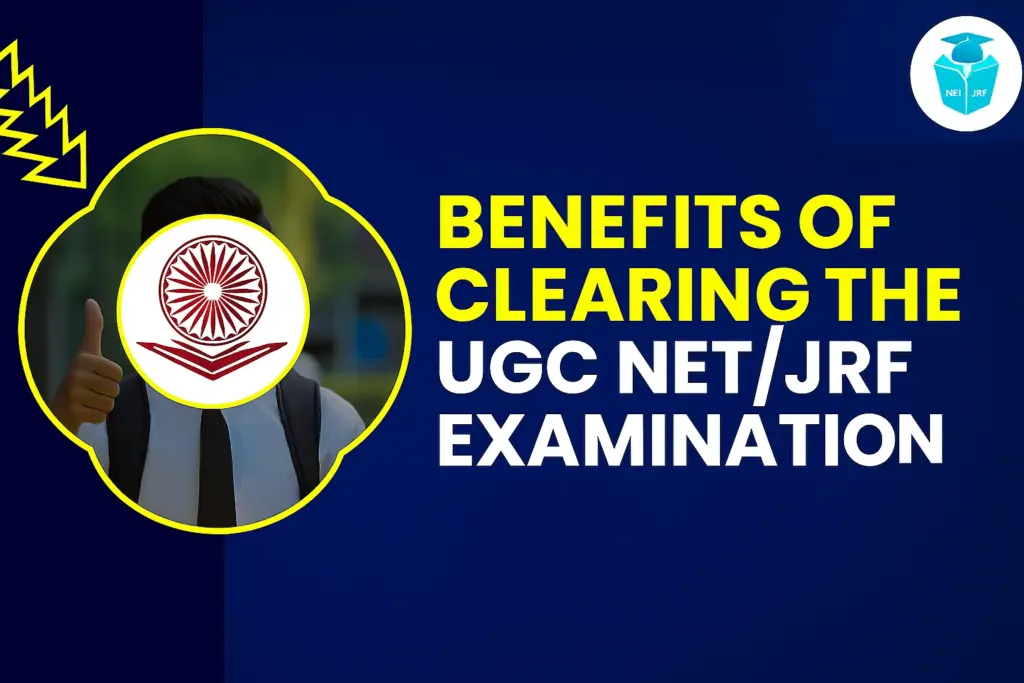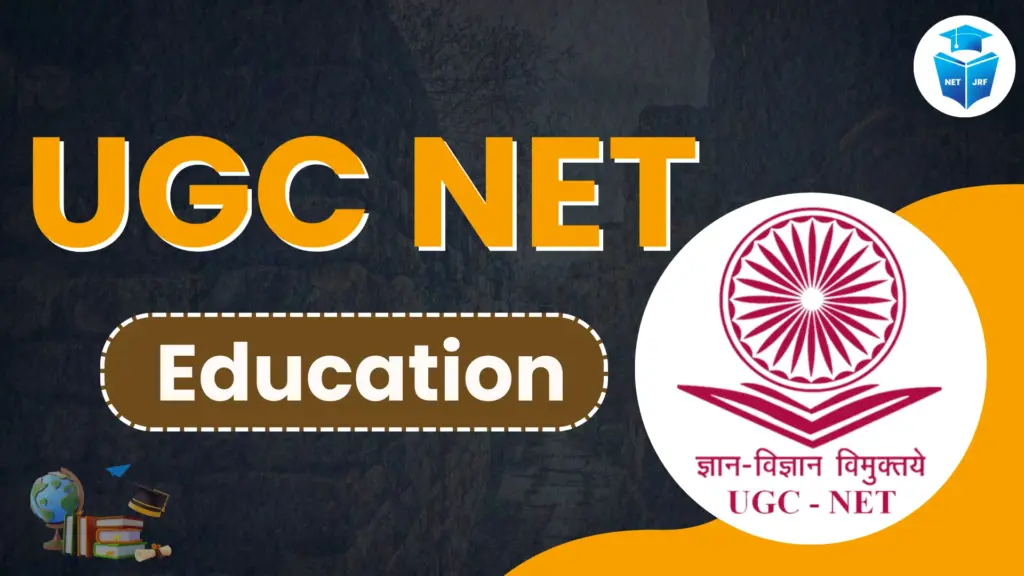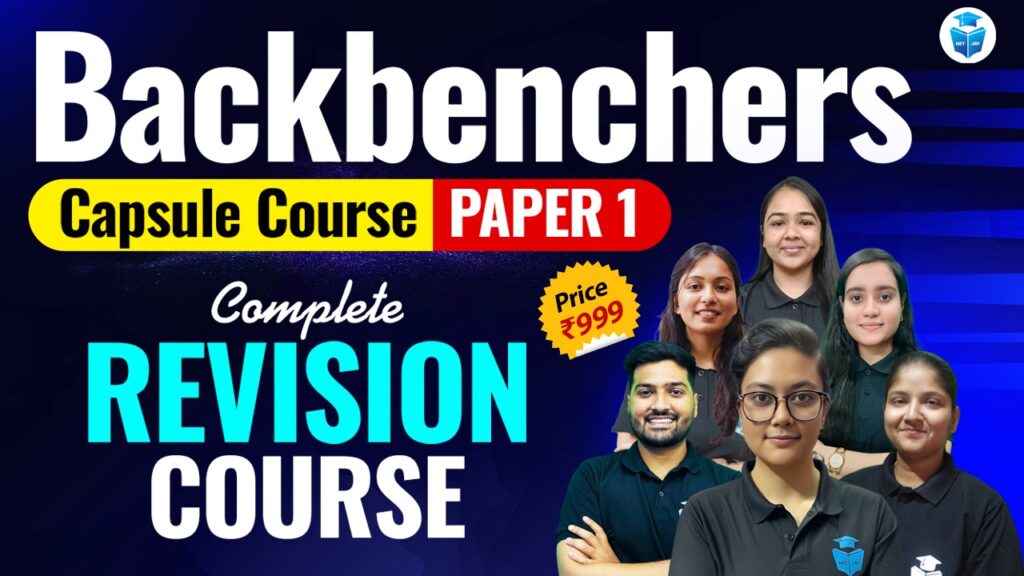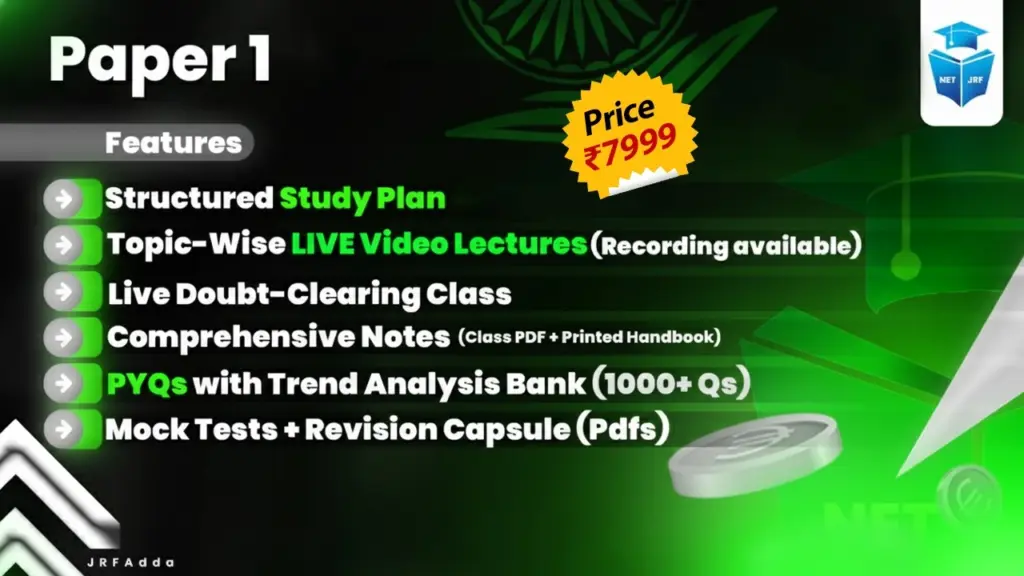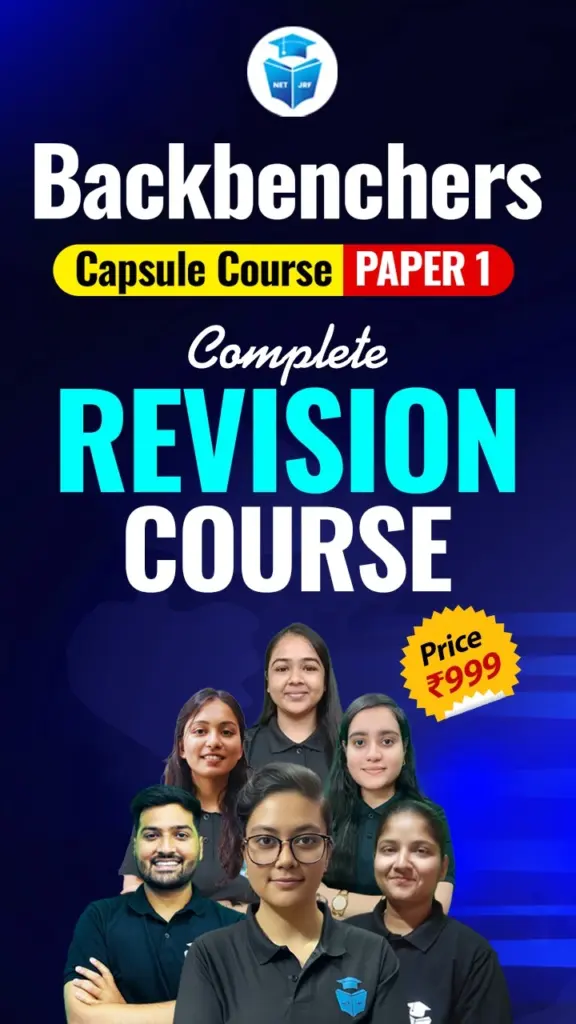UGC NET Human Rights and Duties 2025 is a national-level exam organized by the National Testing Agency on 2 January 2026 in First Shift for aspiring candidates to become Assistant Professors or for Junior Research Fellowship (JRF) in Human Rights and Duties. It is an important subject in the contemporary democratic and constitutional setup with emphasis on justice, freedom, equality, dignity, and duties towards society. This article gives full details regarding eligibility, syllabus, exam pattern, preparation strategy, and career opportunities for candidates appearing for the UGC NET Human Rights and Duties 2025 examination.
Also Read: Career Options After UGC NET June 2025
What is UGC NET Human Rights and Duties?
UGC NET Human Rights and Duties assesses candidates’ knowledge and proficiency in the areas of international conventions, constitutional duties, institutional mechanisms both domestically and internationally, and human rights principles. The test assesses both theoretical knowledge and real-world application of human rights advocacy, legislation, and practice.
Also Read: UGC NET Preparation Tips 2026
UGC NET Human Rights and Duties Eligibility Criteria 2026
The National Testing Agency (NTA) has set certain age and educational requirements that candidates must meet in order to take the UGC NET Human Rights and Duties 2026 exam. These requirements are necessary for both Junior Research Fellowship (JRF) and Assistant Professor positions.
UGC NET Educational Qualification 2026
- Candidates must have finished or be in their last year of a Master’s degree in Human Rights, Law, Political Science, Public Administration, or a related field from a recognized university.
| Category | Minimum Required Marks |
| General/EWS | 55% in Master’s degree |
| OBC-NCL/SC/ST/PwD/Third Gender | 50% in Master’s degree |
UGC NET Age Limit 2026
- For JRF: Maximum age is 30 years (as of the exam date).
- Age relaxation of 5 years for OBC-NCL, SC, ST, PwD, Women, and other eligible categories.
- For Assistant Professor: No age limit.
Also Read: UGC NET Syllabus 2026
UGC NET Human Rights and Duties Exam Pattern 2025
The National Testing Agency will be conducting the UGC NET Human Rights and Duties 2025 exam in Computer-Based Test (CBT) mode. The test has two papers: Paper I and Paper II. Both papers are given in a single 3-hour session. To be considered for qualification, candidates must take both papers.
| Paper | Subject | No. of Questions | Marks | Duration |
| Paper I | General Teaching & Research Aptitude | 50 | 100 | 3 hours |
| Paper II | Human Rights and Duties (Subject-Specific) | 100 | 200 |
Also Read: UGC NET Exam Pattern 2025
UGC NET Human Rights and Duties Marking Scheme 2025
The National Testing Agency (NTA) created a transparent and clear marking scheme for the UGC NET Human Rights and Duties 2025. Candidates must comprehend the marking scheme in order to create a successful exam strategy.
| Paper | No. of Questions | Marks/Question | Total Marks |
| Paper I | 50 | 2 | 100 |
| Paper II | 100 | 2 | 200 |
| Total | 150 | — | 300 |
UGC NET Human Rights and Duties Minimum Qualifying Marks 2025
Candidates must achieve a specified minimum qualifying marks on the UGC NET Human Rights and Duties 2025 exam in order to be eligible for an Assistant Professorship or a Junior Research Fellowship (JRF). These minimum marks vary depending on the candidate’s category and are based on their combined performance in Paper I and Paper II.
| Category | Minimum Qualifying Percentage | Minimum Marks out of 300 |
| General (UR) | 40% | 120 |
| OBC-NCL/SC/ST/PwD/Transgender | 35% | 105 |
Also Read: UGC NET Previous Question Papers
UGC NET Human Rights and Duties Syllabus 2026
The purpose of the UGC NET Human Rights and Duties Syllabus 2025 is to evaluate a candidate’s thorough comprehension of human rights theory, practice, law, and governance as well as their obligations both nationally and internationally.
UGC NET Human Rights and Duties 2026 Unit-Wise
According to the University Grants Commission’s (UGC) guidelines, the syllabus is divided into ten units.
| Unit | Topics Covered |
| Unit 1: Human Rights – Concept and Evolution | Concept, nature, and characteristics of Human Rights
Theories and classifications of Human Rights Historical development (national & international) Magna Carta, Bill of Rights, American & French Revolutions |
| Unit 2: International Human Rights Systems | United Nations and Human Rights
Universal Declaration of Human Rights (UDHR) ICCPR and ICESCR Core UN treaties: CEDAW, CRC, CAT, CERD, CRPD Enforcement: UNHRC, Treaty Bodies, Special Rapporteurs |
| Unit 3: Indian Constitution and Human Rights | Preamble, Fundamental Rights, DPSP
Fundamental Duties and their relation to Human Rights Constitutional remedies and judicial interpretation Role of Supreme Court and High Courts |
| Unit 4: Human Rights and Vulnerable Groups | Rights of Women, Children, Minorities, Dalits, Adivasis
Rights of PwDs and LGBTQIA+ Protection laws and policies in India Issues of refugees and stateless persons |
| Unit 5: Human Rights Institutions and Mechanisms | NHRC and State Commissions
National Commissions for Women, Minorities, SCs/STs Role of NGOs and civil society Role of media and PIL |
| Unit 6: Human Duties and Responsibilities | Philosophical and cultural perspectives on Duties
Article 51A and Constitutional Duties Relationship between Rights and Duties Global perspectives (UNESCO, Earth Charter) |
| Unit 7: International Humanitarian and Refugee Laws | Geneva Conventions and Protocols
Humanitarian intervention principles Role of UNHCR Internally Displaced Persons (IDPs) |
| Unit 8: Human Rights in Global and Regional Context | Regional systems: European Court, African Charter, Inter-American Court
Globalization and Human Rights Rights-based development Sustainable Development Goals (SDGs) |
| Unit 9: Contemporary Issues and Human Rights | Terrorism and communalism
Cyber rights and surveillance Environmental rights CSR and business ethics |
| Unit 10: Research Methodology and Human Rights Education | Scope and nature of human rights research
Research design and tools Quantitative and qualitative methods Education: curriculum, pedagogy, advocacy |
UGC NET Human Rights and Duties 2026 Syllabus PDF Download
To download the UGC NET Human Rights and Duties Syllabus 2025 in PDF format, find link below:
| Language | Download Link |
| English | Download UGC NET Human Rights and Duties Syllabus 2026 (English) |
| हिंदी (Hindi) | यूजीसी नेट मानवाधिकार और कर्तव्य पाठ्यक्रम 2026 डाउनलोड करें (हिंदी) |
Download UGC NET Full Official Syllabus PDF
UGC NET Human Rights and Duties Question Paper 2025
Reviewing the UGC NET Human Rights and Duties 2025 question paper helps in understanding the exam pattern, question difficulty, and priority topics.
| Exam Name | Download PDF |
| UGC NET Human Rights and Duties 2025 December | Download Link (available soon) |
| UGC NET Human Rights and Duties 2025 June | Download Link (available soon) |
UGC NET Human Rights and Duties Previous Year Question Papers
To effectively prepare for the UGC NET Human Rights and Duties exam, previous year’s question papers are essential. They assist candidates in determining key subjects and the degree of difficulty of the questions, in addition to helping them understand the format and structure of the exam.
| Exam Name | Year | Download PDF |
| UGC NET Human Rights and Duties | 2024 | Download Link |
| UGC NET Human Rights and Duties | 2023 | Download Link |
| UGC NET Human Rights and Duties | 2022 | Download Link |
| UGC NET Human Rights and Duties | 2021 | Download Link |
| UGC NET Human Rights and Duties | 2020 | Download Link |
| UGC NET Human Rights and Duties | 2018 | Download Link |
Also Read: UGC NET Eligibility 2025
Career Scope After Qualifying UGC NET Human Rights and Duties
Numerous academic, research-focused, and professional career options in the public and private sectors are available to those who pass the UGC NET in Human Rights and Duties. Here is an in-depth analysis of the career scope:
| Career Option | Description | Potential Roles |
| Assistant Professor/Lecturer | Eligible for teaching posts in Indian universities and colleges. | Teaching Human Rights, Social Justice, Law, Political Science, International Relations. |
| Junior Research Fellowship (JRF) | Funded research opportunity with stipend and HRA. Ideal for M.Phil./Ph.D. and policy research careers. | Research Scholar, Policy Researcher, Development Studies Expert, International Law Researcher. |
| Government and Public Sector Jobs | Employment in various State and Central Govt departments related to human rights and social justice. | Human Rights Commission Officer, Law & Justice Dept Staff, Ministry of Home Affairs, Social Justice. |
| International Organizations | Recruitment by UN bodies and NGOs for human rights and development roles. | Human Rights Officer, Programme Manager, Policy Analyst, Advocacy & Legal Consultant. |
| Research and Policy Analysis | Work in think tanks and research institutions focusing on human rights, minority rights, and policy research. | Policy Researcher, Report Writer, Legal Documentation Expert, Socio-Legal Researcher. |
| NGOs and Civil Society Organizations | Jobs in NGOs working on trafficking, environmental justice, women & child rights, prison reform, disability rights. | Project Coordinator, Advocacy Manager, Community Outreach Officer. |
| Journalism and Human Rights Reporting | Careers in media and publishing focused on human rights issues. | Human Rights Reporter, Legal Journalist, Environmental Justice Correspondent. |
| Legal and Para-Legal Careers | Roles supporting legal work related to human rights, though not a law degree. | Legal Researcher, Public Interest Litigation (collaborative), Para-legal Volunteer. |
UGC NET Human Rights and Duties Preparation Tips 2026
It takes strategy and constant work to prepare for the UGC NET Human Rights and Duties exam. The following crucial pointers will help you ace the 2025 exam:
- Recognize the syllabus Completely: Carefully review the entire syllabus before beginning your preparation. Recognize the main ideas and units, then set aside time appropriately.
- Create a Study Schedule: Make a thorough, realistic study plan that addresses every subject. Set away time for revision, practice questions, and theory reading.
- Consult the Standard Books and Materials: Make use of the suggested readings and assessments related to human rights and duties. Collections of past year’s questions, NCERTs, and specialized human rights books can all be very beneficial.
- Focus on Conceptual Clarity: Concentrate on understanding concepts such as duties, international human rights law, fundamental rights, and relevant case law.
- Don’t just commit facts to memory; instead, concentrate on conceptual clarity. Concentrate on understanding concepts such as duties, international human rights law, fundamental rights, and relevant case law.
- Practice Previous Year Question Papers: To gain an understanding of the exam format, question types, and degree of difficulty, work through previous year’s question papers. This helps in time management as well.
- Regularly take mock exams to increase your speed and accuracy while simulating exam conditions. Examine your performance and focus on your areas of weakness.
- Keep Updated with Current Events: Human rights concerns are frequently connected to current affairs. To stay informed, follow reputable journals, newspapers, and internet portals.
- Regular Revision: The secret to remembering information is regular revision. Before the test, quickly review by creating brief notes or flashcards.
- Enroll in Study Groups or Coaching (Optional): If necessary, enroll in online study groups or coaching sessions to get answers to questions and talk about subjects with classmates.
- Keep Yourself Well and Remain Positive: Concentration and memory are enhanced by a healthy body and mind. While preparing, take breaks, eat well, and keep a cheerful disposition.
UGC NET Human Rights and Duties 2025 exam held on 2 January 2026 (Shift 1). Check eligibility, updated syllabus PDFs for Papers I & II, exam pattern, PYQs, and career scope for JRF or Assistant Professor.
Conclusion
Candidates thinking to pursue a career in academia, research, policymaking, or human rights advocacy must pass the UGC NET Human Rights and Duties 2025 exam. The test requires a thorough understanding of international conventions, constitutional provisions, institutional mechanisms, and emerging human rights challenges. It has a well-structured syllabus that covers both theoretical and practical aspects. Candidates can greatly improve their chances of success by carefully reading the eligibility requirements, exam format, and syllabus; sticking to a disciplined study plan that includes frequent practice; and keeping up with current events.
Being eligible for UGC NET provides access to a number of opportunities, including junior research fellowships, assistant professorships, and positions in international organizations, NGOs, and government agencies that support and advance human rights.
UGC NET Human Rights and Duties 2025 FAQs
What is the best way to prepare for the UGC NET Human Rights and Duties?
Learn the syllabus thoroughly, make a study plan, consult reference materials, work through past year’s exam problems, take practice exams, keep up with current events, and revise frequently.
What are the requirements to be eligible for UGC NET Human Rights and Duties 2025?
A Master’s degree (or its equivalent) in human rights or a related field with at least 55% of the possible points in the general category and 50% in the reserved categories is required of candidates. JRFs are subject to age restrictions, but assistant professors are not.
What is the pattern of the UGC NET Human Rights and Duties exam?
There are 50 questions on Paper I (General Teaching & Research Aptitude) and Paper II (Subject-specific: Human Rights and Duties) with 100 questions, totaling 3 hours.
Where can I find the previous year's question papers and the syllabus for the UGC NET Human Rights and Duties?
The official NTA or UGC websites, as well as trustworthy educational portals like JRFAdda, offer official syllabus PDFs and question papers for download.
Does the UGC NET JRF have an age relaxation for reserved categories?
Yes, OBC-NCL, SC, ST, PwD, women, and other eligible groups are granted an age relaxation of up to five years.
Can I take the UGC NET Human Rights and Duties exam to apply for both the Assistant Professor and JRF positions?
Yes, applicants may use a single UGC NET exam to apply for both positions.
